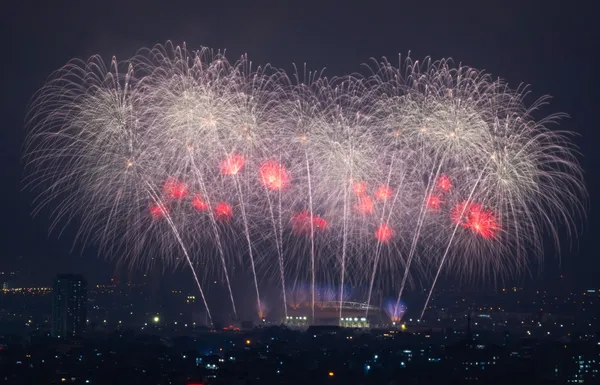 Society
Society


|
| Medical staff test a local resident of Hà Nội's Phú Đô Commune, where an increasing number of infections have been recorded in the past few days. — VNA/VNS Photo |
HÀ NỘI — Hà Nội’s authorities on Thursday suspended the order to quarantine fully-vaccinated people coming or returning to the capital city from high-risk localities just two days after the requirement was announced.
People who have recovered from COVID-19 are also exempt from the quarantine order, according to an official dispatch issued by Chairman of the city’s People’s Committee Chu Ngọc Anh on the supervision of people returning to Hà Nội from high-risk localities.
Returnees instead must monitor their health at home or their residence for seven days, have PCR testing on the first day of arrival and ensure 5K protocol.
Those who haven’t been vaccinated will have to quarantine for 14 days, monitor their health for the next 14 days, and have COVID-19 tests on the first, seventh and 14th day upon arrival, according to the new order.
Those who have been vaccinated or recovered from COVID-19 in a foreign country will have to prepare relevant paperwork according to the Ministry of Foreign Affairs’ guidelines, the order said.
All people returning or coming to Hà Nội are not required to present their COVID-19 test results but the city may conduct tests for people from high-risk areas.
The move is a u-turn from the dispatch issued on Tuesday ordering fully vaccinated people or those recovering from COVID-19 to quarantine for seven days upon arriving Hà Nội from high risk and very high-risk areas.
Flexible treatment and quarantine needed
Given the increasing number of infected cases in the city, Hà Nội’s Health Department Trần Thị Nhị Hà said the city would allow COVID-19 patients to be treated at local health establishments to ensure residents can access health services promptly.
The city would set up mobile health stations and delegate wards’ and communes’ health stations to treat patients with minor or no symptoms. Those with more severe symptoms would be treated at district, city-level health establishments, or even centrally run and private hospitals.
If the number of infected cases increases and the pandemic situation gets worse in the near future, Hà Nội can allow infected patients to be treated at home and promote telehealth, according to Hà.
Doctors and nurses will provide online consultations and local health establishments will be provided with sufficient medicine and medical equipment.
The health department has offered training for all staff at local level health establishments, which will also coordinate with centrally run hospitals and experts to update the treatment regimes.
The city has administered vaccines for over 90 per cent of its population aged 18 and above and has prepared facilities and human resources to conduct vaccination for children aged 12-17 while waiting for vaccines to be distributed.
Regarding quarantine requirements for F1 cases, the health official said Hà Nội wanted to ensure flexible prevention and control measures but they must be in line with scientific principles so all infected cases receive good treatment and F1 cases are tightly monitored to prevent the spread to the community.
She said the quarantine requirements should not cause inconvenience for people and it is necessary to ensure concentrated quarantine facilities are not overloaded.
The city’s health department will work hard to ensure F1 can quarantine at home and avoid people being isolated at concentrated facilities where there is a high risk of transmission.
Hà Nội “overcautious” with quarantine requirements
Former head of General Department of Preventive Medicine under the Ministry of Health Nguyễn Huy Nga previously said Hồ Chí Minh City and many other localities had started allowing F1 cases to quarantine at home for a long time, so Hà Nội could implement this immediately without the need to pilot.
He said the city should apply the quarantine order on household scale, not the whole street or apartment building given that Hà Nội and Hồ Chí Minh have quite equally high vaccination rates and Hà Nội needs to have flexible adaptation.
Deputy chairman of the Hà Nội Infection Control Society Nguyễn Việt Hùng said the feasibility of home quarantine for F1 cases would depend on each locality’s context. Hà Nội is densely populated and many people are not so highly aware of the risks. However, the city is “overcautious” with the quarantine requirements, he said.
"Although Hà Nội’s implementation for F1 to isolate at home is late, it is also very appropriate at this time and is in line with the interests of local people,” Hùng said. — VNS




